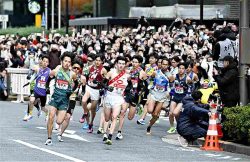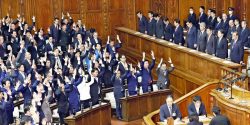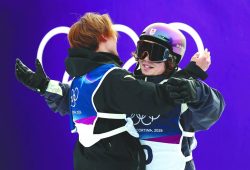Japan Must Prepare To Host Deaflympics in 2025; Intl Sign Language Interpreters Especially Needed
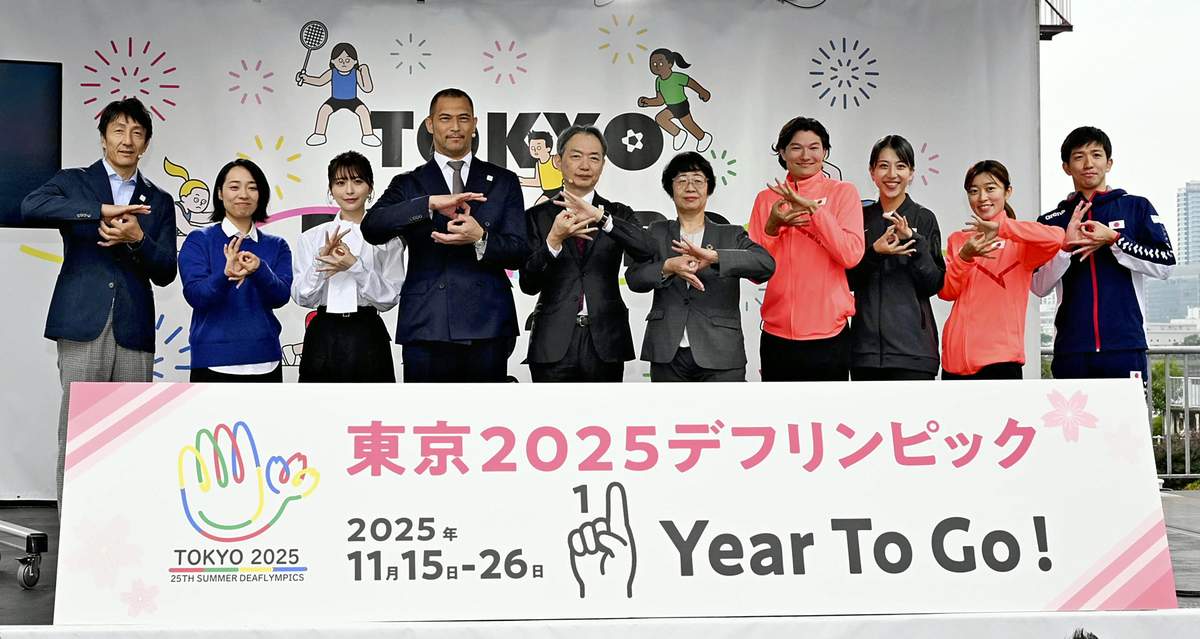
An event to celebrate one year ahead of the Tokyo Deaflympics is held in Koto Ward, Tokyo, on Nov. 15.
8:00 JST, December 7, 2024
Less than a year remains until the opening of the Tokyo Deaflympics, an international sports event for the deaf. About 3,000 deaf athletes from 70 to 80 countries and regions will gather for the event. Preparations are progressing rapidly, but there are still a number of issues to be addressed before the opening ceremony, such as raising awareness of the event, promoting accessibility for deaf people, and training sign language interpreters.
The Tokyo Deaflympics, the first to be held in Japan, will take place over 12 days from Nov. 15-26 next year, with 21 events at 15 venues in Tokyo, plus one additional venue each in Fukushima and Shizuoka prefectures. Most of the events will be the same as those held at the Olympics and Paralympics, but the Deaflympics will also include bowling and orienteering, in which competitors race to find their way to checkpoints in fields and mountains while reading a map.
The first Deaflympics were held in Paris in 1924. They have a history of more than a century and are much older than the Paralympics, which began in 1960. However, compared to the Olympics and Paralympics, the Deaflympics are extremely little known.
In a survey conducted by the Tokyo metropolitan government last year among Tokyo residents aged 18 and over, 93% of respondents were aware of the Paralympics, but only 15% were aware of the Deaflympics. In a 2021 nationwide survey conducted by the Nippon Foundation Paralympic Support Center, 97.9% of respondents were aware of the Paralympics, but only 16.3% were aware of the Deaflympics. The surveys showed that more than 80% of people in Tokyo and the rest of Japan were not aware of the Deaflympics.
Even so, momentum for the games has been building in various parts of the country, with events such as the Deaflympics Festival organized by local governments and deaf organizations. Mitsuji Hisamatsu, chairman of the Organizing Committee of 2025 Summer Deaflympics, said: “Two years ago, when we were selected as the host city, we received inquiries once or twice a week, but now we receive inquiries from local governments and other organizations every day. I think awareness has increased significantly.”
Starting next June, the National Caravan Activity is planned, in which a caravan will visit all 47 prefectures in Japan to hold events in lieu of a torch relay.
The Tokyo metropolitan government, which is involved in the operation and preparation of the games, sees the Deaflympics as a great opportunity to promote barrier-free access to public facilities after the Tokyo Paralympics in 2021.
In fiscal 2024, the Tokyo metropolitan government is promoting the installation of “light warning devices” at six facilities it owns, including Komazawa Olympic Park, which will be used as a venue for the games. In the event of a disaster, the system will alert people by flashing white lights. By next summer, special lights will be installed in the ceilings of 661 toilets, changing rooms and other facilities.
In addition, devices that convert speech into text and display it on a screen in front of the user have been installed in about 40 locations, including sports facilities and libraries. The system displays the spoken words of hearing people as text, and deaf users can communicate by typing text on a terminal. The Tokyo metropolitan government’s International Sports Division says the system will also be helpful for elderly people with hearing difficulties.
One of the biggest problems is finding international sign language interpreters. Like spoken languages, sign languages vary from country to country and region to region. For example, saying “thank you” in Japanese sign language involves placing the right hand vertically on the back of the left hand and making a gesture similar to a sword cut, while “thank you” in international sign language involves placing the right hand over the mouth and moving it away as if throwing a kiss.
At international conferences for the deaf and sporting events such as the Deaflympics, international sign language has become the lingua franca, as the World Federation of the Deaf and other organizations have worked to develop and promote it. According to the Japan Information and Culture Center for the Deaf, there were 4,198 registered sign language interpreters in the nation as of October 2024. However, there are reportedly only a few people in Japan who can use international sign language.
In preparation for the Deaflympics, the Japanese Federation of the Deaf has been holding exams for the registration of international sign language interpreters. Seven such interpreters were registered in December 2023.
In addition, the Tokyo metropolitan government began subsidizing the fees for attending training courses in 2023, and a total of 331 people received such support in that year. However, there are still not many people in Japan who use international sign language, and there is an urgent need to raise social awareness of international sign language interpreters and to train more interpreters.
The organizing committee aims to secure nearly 100 international sign language interpreters for the games. Hisamatsu, the chairman, said: “We want to have interpreters in place to ensure [communication of] information, such as for protests to the judges. We will try to ensure 100% communication.”
Adam Kosa, president of the International Committee of Sports for the Deaf, the international governing body for the Deaflympics, visited the Tokyo metropolitan government building on Nov. 19 and met with Gov. Yuriko Koike.
Kosa said: “The Deaflympics will be an opportunity to have a positive impact on Japanese society, just like the Tokyo Olympics and Paralympics. I believe it will help create a more inclusive Tokyo and Japan.” He called for the games to be a catalyst for creating a more diverse and accepting society.
Koike responded in international sign language, saying: “We will create an environment where athletes can perform at their best. I am confident that these efforts will surely make Tokyo evolve and brighten the future.” She showed enthusiasm for further accelerating preparations for the games.
The Deaflympics have the potential to bring about significant changes in society. But first we must steadily raise awareness of the games, involve more people, and use the remaining year of preparation to create a society where athletes from around the world and people with hearing disabilities can feel at home.
Political Pulse appears every Saturday.
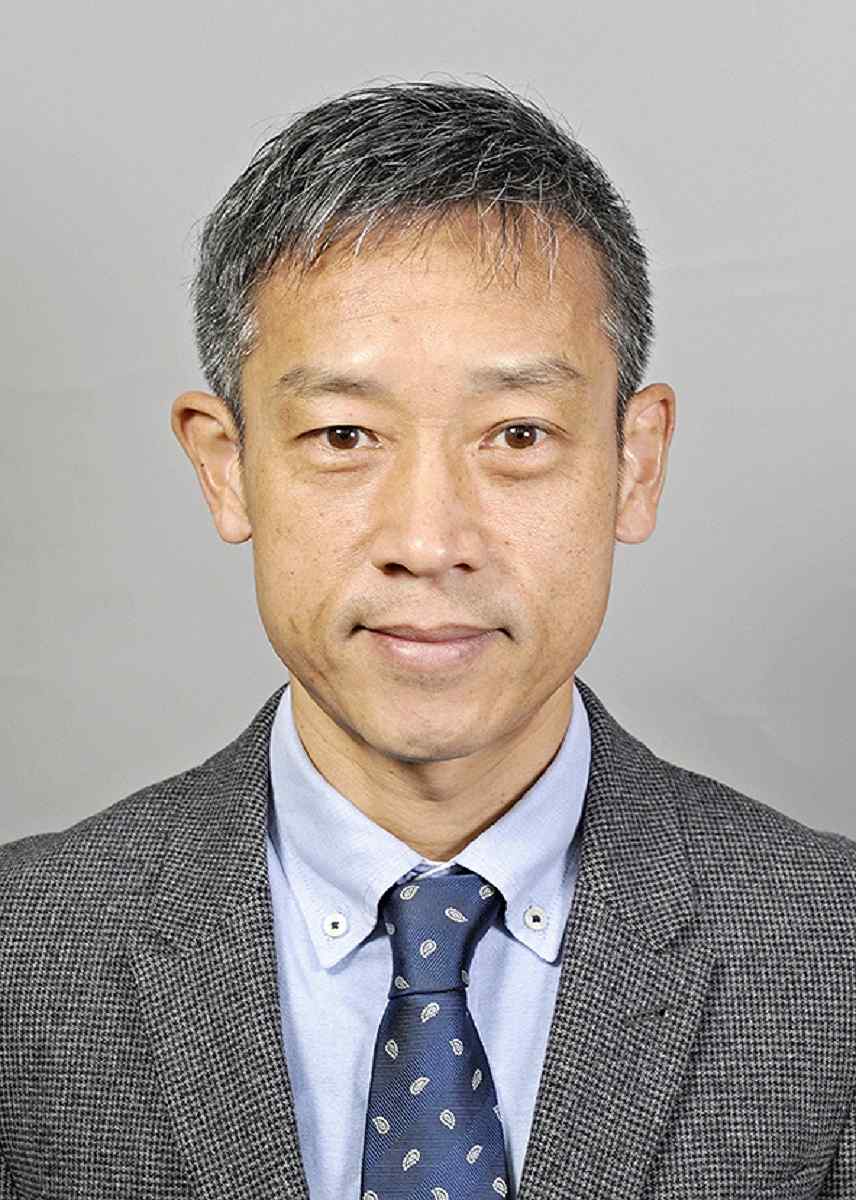
Yuji Kondo
Yuji Kondo is a senior writer in the Sports Department of The Yomiuri Shimbun.
Related Tags
Top Articles in Editorial & Columns
-

Riku-Ryu Pair Wins Gold Medal: Their Strong Bond Leads to Major Comeback Victory
-

40 Million Foreign Visitors to Japan: Urgent Measures Should Be Implemented to Tackle Overtourism
-

University of Tokyo Professor Arrested: Serious Lack of Ethical Sense, Failure of Institutional Governance
-

China Provoked Takaichi into Risky Move of Dissolving House of Representatives, But It’s a Gamble She Just Might Win
-

Policy Measures on Foreign Nationals: How Should Stricter Regulations and Coexistence Be Balanced?
JN ACCESS RANKING
-

Japan PM Takaichi’s Cabinet Resigns en Masse
-

Japan Institute to Use Domestic Commercial Optical Lattice Clock to Set Japan Standard Time
-

Israeli Ambassador to Japan Speaks about Japan’s Role in the Reconstruction of Gaza
-

Man Infected with Measles Reportedly Dined at Restaurant in Tokyo Station
-

Man Infected with Measles May Have Come in Contact with Many People in Tokyo, Went to Store, Restaurant Around When Symptoms Emerged



